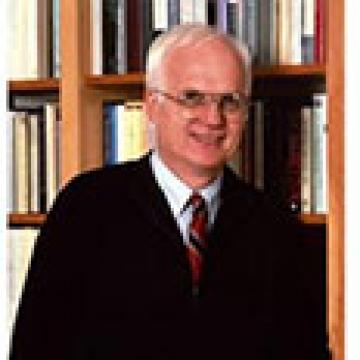William McKinley: Life in Brief
For a long time, William McKinley was considered a mediocre President, a chief executive who was controlled by his political cronies and who was pressured into war with Spain by the press. Recent historians have been kinder to McKinley, seeing him instead as a decisive President who put America on the road to world power. McKinley's difficult foreign policy decisions, especially his policy toward China and his decision to go to war with Spain over Cuban independence, helped the U.S. enter the twentieth century as a new and powerful empire on the world stage.
Political Opportunities
Born in 1843 and raised in Ohio, William McKinley planned as a young man to become a Methodist minister. When the Civil War started, McKinley proved a valiant soldier, rising in the ranks from a private to a brevet major on the staff of Colonel Rutherford B. Hayes, who became a lifelong friend and mentor. When he returned to Ohio to practice law, he used his connections with Hayes to rise rapidly in Ohio politics. He served in Congress from 1877 to 1891 before becoming governor of Ohio. Congressman McKinley was the Republican Party's leading spokesman for protectionism in foreign trade. His McKinley Tariff of 1890 established substantially higher tariff rates on imported goods in order to protect U.S. business and manufacturing.
The nation's devastating economic collapse in 1893 turned voters against the Democratic Party's hold on the presidency, giving McKinley a good shot at the White House in 1896. McKinley argued that his commitment to protective tariffs on imported goods would cure unemployment and stimulate industrial growth. McKinley's political ally from Ohio, the industrialist Marcus Hanna, helped McKinley organize and fund his campaign. McKinley beat Democrat William Jennings Bryan in the greatest electoral sweep in twenty-five years. Four years later, the popular McKinley ran on a strong record and defeated Bryan again, by even larger margins.
Strong International Presence
McKinley led the U.S. into its first international war with a European power since the War of 1812. The decision to come to the aid of the Cubans struggling to throw off Spanish rule was hastened by reports that Spain was responsible for the explosion of the U.S. battleship Maine. On April 25, 1898, Congress declared war, promising to secure independence for Cuba once the war ended. To secure America's position in the Pacific, McKinley immediately pushed a joint resolution through Congress to annex the Hawaiian Islands. After three short months of fighting, the U.S. was victorious. The peace treaty between the United States and Spain granted Cuba its independence—although the island became a U.S. protectorate—and gave the United States control of former Spanish colonies, the Philippines, Puerto Rico, and Guam. Practically overnight, the United States became a colonial power, but not without costs. The United States almost immediately entered into a brutal conflict with Filipino nationalists who rejected American rule.
Further asserting American power on the global scene, McKinley sent 2,000 troops to China to help the Europeans put down the Boxer Rebellion. He also intervened twice in Nicaragua to protect U.S. property interests. Both of these actions were examples of the United States as a rising hemispheric and world power.
To obtain a hold on world markets, McKinley authorized his secretary of state, John Hay, to issue the "Open Door" notes on China. These notes declared U.S. support for an independent China and expressed the American desire that all nations with commercial interests in China compete on an equal footing. The war with Spain and the Open Door strategy laid the groundwork for a new American empire.
Personal Challenges and Assassination
First Lady Ida Saxton McKinley never recovered from the devastating loss of both her infant children as well as her mother within three years of her marriage to McKinley. She developed epilepsy, a disease for which there was no treatment in the late nineteenth century. McKinley gave the First Lady his full attention, breaking White House protocol in seating her by his side at State dinners. When he was shot by an assassin in 1901, McKinley said to his personal secretary, George B. Cortelyou, "My wife, be careful, Cortelyou, how you tell her—oh, be careful." McKinley died from his wounds eight days later, on September 14, 1901.
Despite criticism from contemporaries and historians, many of whom disagreed with his policies and found his leadership wanting, McKinley was a President who acted decisively in going to war with Spain, asserted great presidential authority over his cabinet and generals, and understood the link between foreign markets and national prosperity. During his administration, the United States acquired possessions that allowed it to become a major world power.
